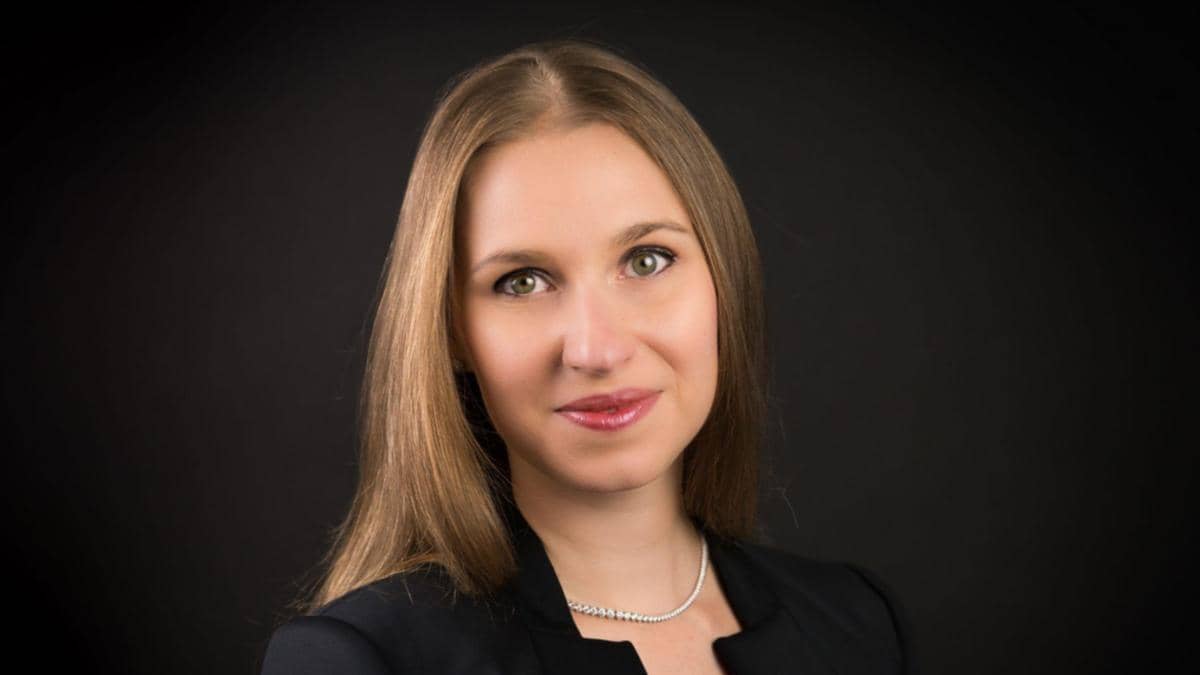Kees Verbaas is our Fund Selector of the Month

15 DEC, 2021
By Constanza Ramos
Kees Verbaas is Chief Investment Officer at Altis Investment Management, an independent affiliate of NN Investment Partners. In this role Kees advises institutional investors about portfolio construction and the selection of investment strategies across all asset categories. Previously, Kees was responsible for the investment solutions of KLM’s pension funds at Blue Sky Group and Head of Global Emerging Markets at ABN Amro Asset Management and at Hermes (London). At the start of his career, Kees worked as a management consultant for the European Commission and the Worldbank, and led the Trade Delegation of The Netherlands in Russia.

1. When did you start your career? Did you always want to work in the financial sector?
I started in the early nineties in business and in management consultancy. I worked on reform projects for the Worldbank and European Commission in developing countries, in particular Eastern Europe and the former Soviet Union. In this period I developed my passion for emerging markets.
A very interesting period was when I headed the Trade Delegation of the Netherlands in Russia for 3,5 years. The country was just opening up and our office helped quite a number of Dutch companies to gain inroads into the Russian market. We represented firms in various sectors from shipping and agriculture to real estate and insurance. It gave me a better understanding of how companies invest and operate, something which was very helpful when I went into fund management and allocated capital to promising companies.
After that I was recruited by ABN Amro Asset Management to join the Eastern Europe equity team. My manager teamed me up with a great portfolio manager, with whom I partnered for 9 years and we grew to become heads of the global emerging markets team, until AAAM was taken over and unfortunately ceased to exist.
I started to run small-scale investment portfolios already in high school and truly wanted to work as a fund manager. I am fascinated by the complexity of the markets and still love to be in the industry. In my current job at Altis I enjoy applying my fund management background to selecting suitable investment strategies for our clients.
2. How does your work on daily basis look like and what kind of problems do you normally face as a Chief investment officer at Altis Investment Management?
My days are a mixture of working with clients, asset managers, my team and corporate issues.
We need to constantly finetune our fund selection work to changing client demand, particularly in a low interest rate environment and with increased attention for ESG and operational due diligence. As a team we have frequent contact with our clients about these issues, next to manager and portfolio reviews. We are also in regular contact with asset managers, who are responding to these trends and developing new strategies which we research.
Finally, as part of the management team of the fiduciary business at NN Investment Partners (our mother company), I spend time on strategy and business development. Early next year the acquisition of NN IP by Goldman Sachs is expected to be finalised. We are very much looking forward to preparing for the integration.
3. What aspects do you consider more important when selecting a fund for a portfolio? And what processes do you have in place when selecting funds?
There is not a one-size-fits-all answer, as we work for pension funds, insurance companies and private banks, a broad range of clients who may have different objectives.
We always look through three lenses when we analyse funds or mandates: investment due diligence, operational due diligence and ESG. In investment due diligence we look at the usual “P’s”: people, philosophy, process, performance. We pay a lot of attention to transaction analysis to see how true-to-style the manager is and also to understand if good performance came from skill or from luck. Finding out if the manager was right for the right reasons is an important part of our analysis.
Operational due diligence has gained importance as the regulator demands from institutional investors that they have a firm grip on the parties they outsource to. We therefore make an assessment of the non-financial risk management framework (a.o. Legal, Compliance, Operations) of an asset manager via questionnaires, interviews and on-site dd. Sometimes it is interesting to see how practice differs from policy statements.
ESG is an irreversible trend which plays a central role in our analytical work nowadays. We make an assessment of the manager's ESG-integration at firm-level, at the level of the investment strategy and we measure the ESG-impact of a portfolio versus a pre-defined benchmark. This way we gain insight in the actual ESG-profile of a manager and a strategy. Our holdings-based analysis and profound questionnaires enable us to identify window-dressing and greenwashing.
When we consider funds to recommend to our clients, we always look for the most suitable combination of risk, return, costs, ESG and complexity within an asset category. We don’t work with a standard list of recommended funds, each assignment starts with the specific criteria of the client. Therefore the importance of various aspects may differ and, as a result, the recommended fund as well. Certain clients prefer market performance at low costs, others aim for higher performance via private market investments, other clients look for optimisation of their ESG profile.
4. Which themes or sectors do you believe are more interesting at the moment? And which are the less?
In this environment of low interest rates, we are obviously looking for yield in fixed income. Dutch mortgages have traditionally been an alternative for government bonds given the very low risk profile and interesting yield pick-up. For some of our clients we are considering certain ABS as part of the matching portfolio as a further diversification away from government bonds. Trade Finance is interesting given the short duration, collateral and higher yield characteristics.
Green bonds are an attractive way to make the portfolio more sustainable without compromising the return objective of the portfolio. We zoom in on the detailed holdings of different funds in order to find genuine green bond portfolios and avoid greenwashing.
In equities the topic of climate transition is gaining ground. We see more and more managers offering suitable solutions such as Paris Aligned strategies.
5. Is having a good relationship with the fund manager an important aspect of the selection process?
A good relationship with the fund manager helps in better understanding the intricacies of idea generation and the decision making process within the team. We aim to be as objective and fact-based as possible and use quantitative and rules-based qualitative scoring methodologies. Once a manager is selected it is important to maintain a good relationship and to interact frequently in order to stay informed about the reasons for shifts in the portfolio. The relationship goes beyond the pm, the client servicing group is also important in providing us with the right information.
6. Do you have any red flags when selecting a fund? And what are the most important aspects a fund needs to have to be selected for your portfolio?
Apart from investment due diligence we also perform extensive operational due diligence and ESG analysis on our managers. In each area we have identified red flags and minimum standards, which would maybe be an interesting topic for another article.
Typically, funds need to have a certain size and track record. Performance obviously needs to be good, but in a time when coverage ratios are fragile and a reduction of pension benefits is a real threat, low costs and low volatility of excess returns are just as important.
We have also defined a set of minimum ESG-criteria at Altis in order for a fund to be recommended, such as SFDR art. 8 classification, net-zero commitment, a PRI score of A and adherence to our exclusion list.
7. Do you have any advice for anyone wanting to pursue a career in the asset management industry?
My main advice would be to invest your own money and run one or more portfolios if you are interested in working in the asset management business, working with other people’s money. This does not have to be a big amount, even with a few thousand euros you can build a reasonably balanced portfolio. If there is real money behind your ideas, you are much more on top of the markets, stocks or funds, whichever you prefer to follow. And you can work with clients with more credibility if they know you understand the pain of loss and the joy of an investment gone well.
Given the rising importance of sustainability in asset management, knowledge of ESG, combined with finance, is also an important element of the package employers look for. Driven by client demand more and more firms try to combine doing well with doing good. If you are looking for an intellectual challenge in a competitive field, asset management offers you an interesting line of work.


